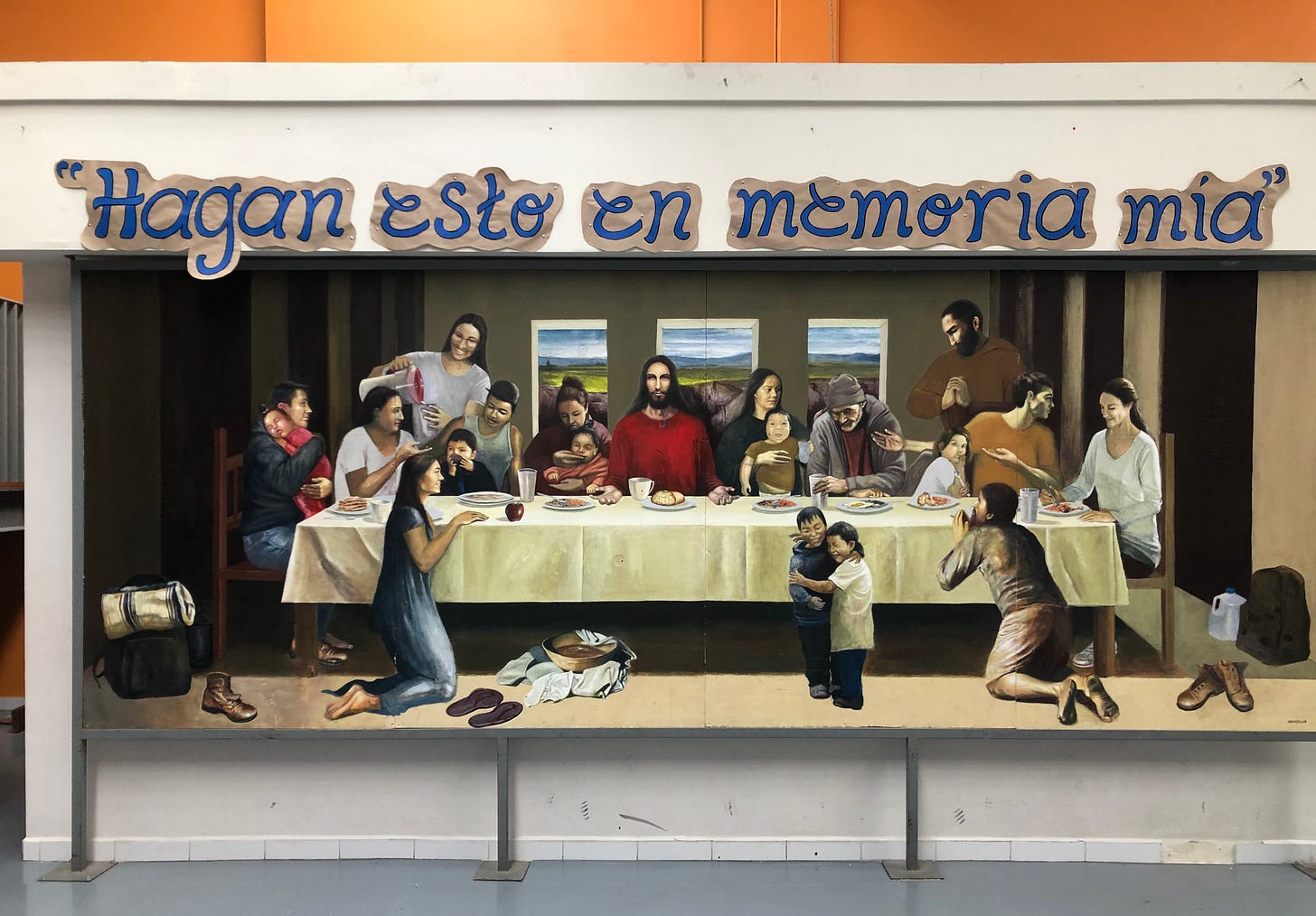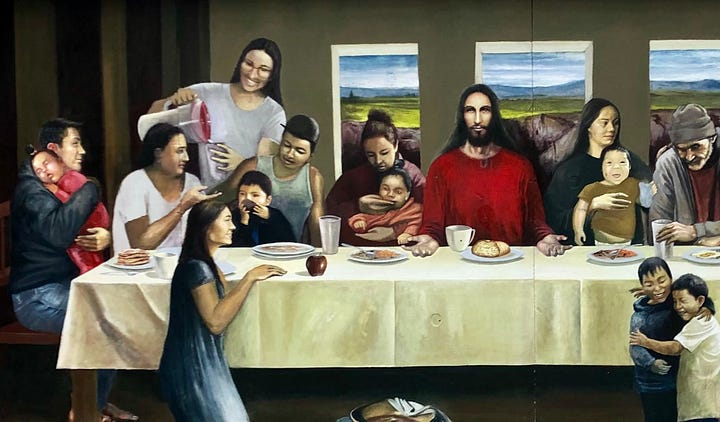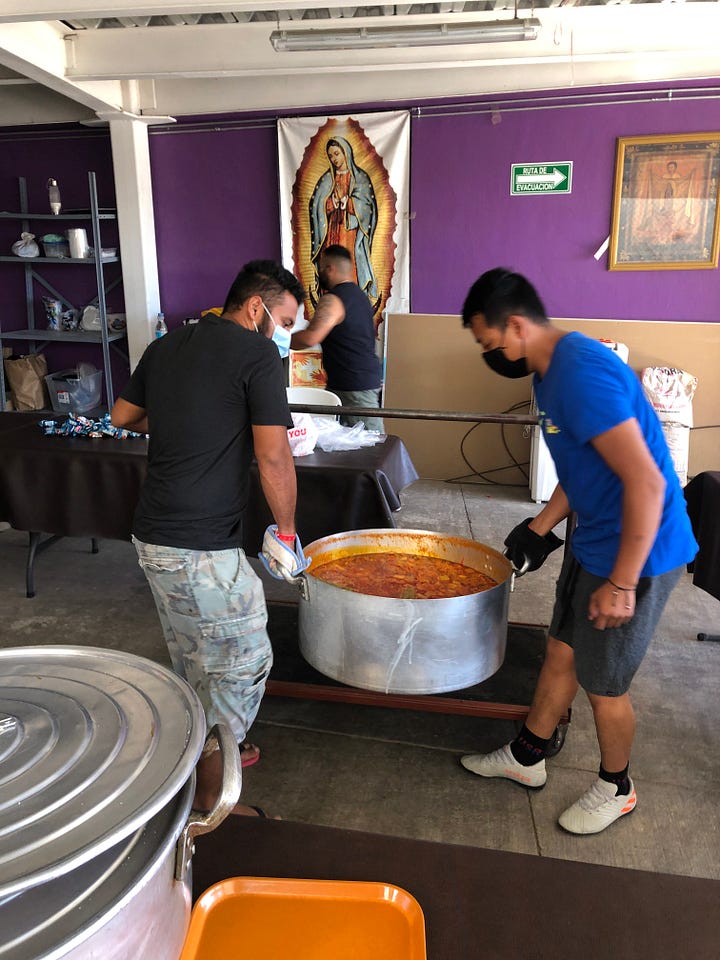Reframing World Communion Sunday in an Era of Globalized Religious Nationalism
Uniting Around the Vision of a World Without Tyranny
Today Christians are celebrating World Communion Sunday. As Christian nationalism and other religious nationalisms rise globally, threatening democracy and the planet, we must reexamine this day. We must see this not as a unifying ritual for our religious tribe but as a ritual that moves us beyond the tribal to the universal.
World Communion was envisioned by Dr. Hugh Thompson Kerr, pastor of Shadyside Presbyterian Church in Pittsburgh, in 1930. Still, it was only after the genocidal horrors and mass death of the Second World War that it caught hold. “World Wide Communion symbolized the effort to hold things together in a spiritual sense. It emphasized that we are one in the Spirit and the Gospel of Jesus Christ” wrote Kerr’s son.
Now may be the time to fully heed the intent of World Wide Communion to heal from the horrors of war. The world is in multiple wars, both shooting wars and wars of ideologies that target vulnerable groups.
What would it look like to have this Sunday not be about doctrine and institutional unity and instead focus on the human task of breaking the chains of empire and reaching across divides to one another for the sake not primarily of unity but of justice?

Jesus offered the table as a vision for all humanity, a shared meal in the shadow of empire, an embrace of the sacrifice of the individual for the sake of all.
Biblical scholar Ched Myers writes that the “Eucharist gathered Christians around the life of a Jewish prophet (Jesus) who Caesar’s imperial execution stake could not vanquish (Mark 14).”
Likewise, the Jewish Passover, which Jesus celebrated in Mark 14, “signaled the liberation of Hebrews from the imperial straightjacket of Pharaoh’s Egypt (Ex 12).”
These two meals gave birth to a people whose “actions of disarmed resistance to empire eventually became historical watersheds, animating countless future slave revolts and inspiring many subsequent believers, famous and forgotten, to embrace the via crucis.”
World Communion Sunday should be understood as a ritual that helps us envision ourselves beyond our own religious, racial, gender or national tribe and unified instead by a vision of human and planetary flourishing; a realization that all are one. What happens to one–human or nonhuman; happens to all. One is not free until all are free.
Myers reframes sacred meals this way:
Let us not imagine that these sacred meals are some sort of religious entitlement, or empty ritual, or venue for strictly private spirituality. Rather, when we Jews and Christians come to our respective table of Memory, we are part of a legacy that invites our embrace, an ongoing struggle to take back the Freedom story from empire-builders and profiteers and to restore it among Kingdom-seekers and prophets.
To take back the Freedom story means to see ourselves not just as Christians but as humans, unified with those of all faiths and ethical views who embrace dignity, respect, and well being for all. World Communion can be most transformative when it orients us to unify and reclaim faith for justice at a moment in history where anti-rights religious movements are making common cause with authoritarian leaders.
Christian nationalism is building transnational movements that justify the denigration of certain groups in the name of faith, creating social hierarchies and fanning hatred, factionalizing the public to organize it in service of autocratic power building and greed. From Christian nationalism, which helped drive the U.S. and Brazil post-election insurrections, to Russia’s embrace of U.S. culture war tactics under the guise of Russian orthodoxy across Eastern Europe, to Uganda, where Christians under the influence of the U.S. Christian right have helped drive policies that make being LGBTQ plus a crime punishable by death. Christian nationalists are using issues of sexuality, race, and sectarianism on almost every continent to divide and conquer, distracting from real issues like the environment, inequality, and corruption.1
Christianity may be the most widespread and well-funded, but Hindu Nationalism, as evidenced in India, is sparking violence against religious (Muslim and Christian) and social minorities and even impacting U.S. politics. Millions of Israelis recently turned out in the streets to resist Jewish nationalism in the current ruling coalition, and Buddhist nationalism oppresses Muslim minority groups in Myanmar.
Transformative nonviolent movements have galvanized millions in the last century and a half to end apartheid, segregation, colonial rule, and repressive regimes around the world and in the creation of the Universal Declaration of Human Rights. Religious beliefs that are rooted in the concept of universal human dignity and freedom were inspirational in these movements. It will require a transnational movement of this magnitude to counter what transpires today.
May our celebrations of World Communion move us to collaborative action across lines of faith and nation to fulfill our shared vision of a world free from oppression and exploitation.


AWID. Rights at Risk: Time for Action. 2021 Report. https://www.awid.org/ours-2021.




Thank you. Great link. Disturbing. But great. I spoke at a vigil with the Sikh community this past Saturday. I’d love to share more with you if possible.
Wonderful article. Thanks for sharing. Thanks also for mentioning the problem of Hindu Nationalism in India. It is not getting the attention it needs, and people of all faiths are suffering in India because of it.